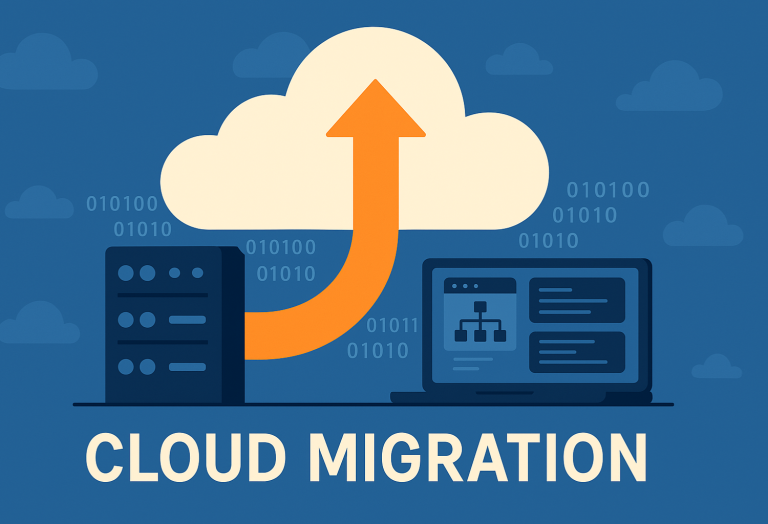
As more businesses transition to the cloud, ensuring everything operates efficiently and cost-effectively has become a major priority. Selecting the appropriate cloud management tools can significantly impact this process. With the right tools in place, companies can monitor performance, manage expenses, enhance security, and simplify daily operations within their cloud environment. However, with so many options out there, how do you determine which one best suits your needs? Now, let’s take a look at the important factors to consider, which will assist you in making the best decision for your business.
Why Businesses Need Cloud Management Tools
Cloud management tools help businesses in monitoring all activities within their cloud environment. These tools come equipped with a range of valuable features, such as tracking resource usage, assessing performance, analyzing costs, and addressing security issues. Choosing the right tool enables you to operate more efficiently, minimize resource waste, and make informed, data-driven decisions.
What to Look for in Cloud Management Tools
- Cost Management and Optimization
Cloud expenses can escalate rapidly if you don’t monitor them closely. Seek out tools that simplify tracking your spending, help you understand where your money is going, and even predict future costs. Certain tools can also offer recommendations for reducing waste by pinpointing underutilized resources.
- Real-Time Monitoring and Alerts
Downtime and performance issues can affect both your customers and your revenue. With real-time monitoring tools and custom alerts, your team is notified right away if there’s a problem, allowing them to address it before it impacts your services.
- Multi-Cloud and Hybrid Cloud Support
If you are using multiple cloud providers or a combination of cloud and on-premises resources, ensure that the tool you select can manage everything effortlessly. With multi-cloud support, you can oversee all your resources from a single platform, saving you time and simplifying the process.
- Security and Compliance Management
Ensuring security is essential when utilizing cloud services. Seek out a tool that offers security monitoring and compliance capabilities, such as vulnerability scanning and identity management. If your industry is subject to regulatory standards, like healthcare or finance, compliance management becomes indispensable.
- Automation Capabilities
Managing cloud resources manually can take up a lot of your time. Consider using tools that offer automation features, allowing you to establish policies for scaling, backups, or maintenance. This approach enables your resources to adapt to demand without needing your constant oversight.
- Analytics and Reporting
A good cloud management tool should provide comprehensive analytics and reports, allowing you to track trends, assess performance, and make well-informed decisions. Custom reports can also be beneficial for sharing insights with stakeholders or executives.
- User-Friendly Interface and Customization Options
A complex tool can hinder your team’s productivity. Choose one that is user-friendly and allows your team to tailor the dashboard, reports, and alerts to fit their specific needs.
What to Consider When Choosing Cloud Management Tools
- Identify Your Business Needs
Begin by defining your organization’s primary requirements, whether it’s improved cost management, enhanced security, or support for multiple cloud platforms. This will guide you in selecting tools that address your unique challenges.
- Assess Compatibility with Your Cloud Environment
When opting for the right cloud environment, it’s important to confirm that the tools you are considering work well with your existing cloud providers. For example, if you use AWS and Azure, make sure the tool can easily integrate with both. Ensuring compatibility is vital to avoid issues during the setup and to maintain smooth operations as you grow.
- Evaluate Vendor Reputation and Support
Choose a tool from a vendor with a solid reputation in cloud management. Take a look at their customer support options, responsiveness, and resources. Strong vendor support can be a lifesaver if you ever run into issues or need to implement new features.
- Take Advantage of Free Trials and Demos
Many cloud management tools offer free trials or demos, so you can test out the features, functionality, and overall usability. Hands-on experience with a trial can really help you decide if a tool is the right fit.
- Consider Long-Term Scalability and Flexibility
As your company grows, your cloud needs will likely expand too. Look for cloud migration services that can scale alongside your organization and adapt as you add more resources. This flexibility can save you time and money in the long run.
- Factor in Total Cost of Ownership (TCO)
In addition to the subscription fee, be sure to account for any additional costs, such as setup fees, training, and future upgrades. Evaluating the total cost of ownership among your selected tools will help you identify which one provides the best long-term value.
Top Cloud Management Tools in the Market
Here are some well-known cloud management tools, each with its own strengths:
- AWS CloudWatch:This tool excels in managing AWS resources, offering effective cost management, monitoring, and analytics.
- Microsoft Azure Monitor: A strong choice for Azure environments, it features comprehensive performance monitoring, security capabilities, and automation.
- Google Cloud Operations Suite: Renowned for its real-time insights, this tool provides extensive monitoring and logging for users of Google Cloud.
- CloudHealth by VMware: Perfect for managing costs across multiple clouds, CloudHealth offers cost analysis, governance, and automation features.
- Turbonomic: An AI-powered solution that assists with resource management in hybrid and multi-cloud environments.
Each of these tools has unique offerings, so the best choice will depend on your specific cloud setup and business objectives.
Conclusion
Finding the right cloud management tool is crucial for maximizing your cloud investment. A well-selected solution can help your team manage resources more effectively, control costs, boost security, and streamline daily operations. For companies that require 24/7 IT monitoring services, a reliable cloud management tool can provide continuous visibility and proactive alerts, ensuring issues are caught and resolved promptly. Take the time to assess your needs, test a few options, and choose a tool that fits both your current and future cloud strategy. The right choice will help your organization make the most of cloud technology, fueling growth and innovation.

